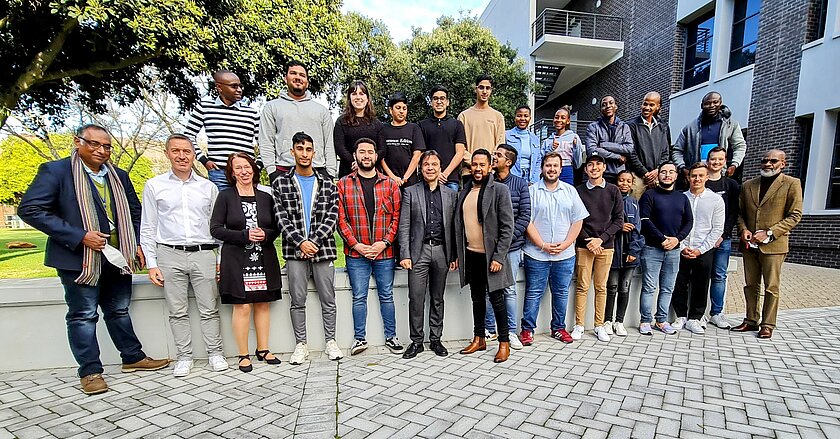What was special about this hackathon was that the participants did not simply "program away", but approached the challenges in a structured manner, focusing at all times on the benefits for potential customers.
First, the participants collected ideas together and presented them in a pitch by the idea initiator. It was interesting to note that the HNU students focused primarily on improving efficiency in mobility, whereas the African students addressed the issue of road safety. By way of background, more than 14,000 people die in road traffic accidents in South Africa every year, compared to around 2,500 deaths in Germany in 2021, with a significantly higher number of motor vehicles per capita.
All four selected topics are highly relevant for Cape Town and contribute to safer driving:
Topic 1: Display for overtaking large vehicles
Topic 2: Engine control during severe weather conditions
Topic 3: Driver vital sign measurements
Topic 4: Alcohol detection of the driver
Each:r student was able to choose a topic, resulting in four interdisciplinary/international work teams made up of students from different disciplines and universities.
The goal of the hackathon was to teach intercultural aspects as well as to gain skills in using Internet-of-Things (IoT) hardware, and programming software applications, even with no prior knowledge. Each group worked with a Raspberry Pi, different sensors/actuators and different software applications.
Already on the second day, students who were strangers to each other became teams working closely together. Everyone was able to bring in their own skills and contribute a part to the overall result.
In the style of an agile project, there was a daily planning of the next jobs as well as a review of the results of the last day (with a "definition of done"). The highlight of the week was the final presentation with live demonstration of the resulting prototypes. The hybrid event was attended by professors and staff from both universities. All participants were enthusiastic about the results that were possible in one week.
But the cultural aspect and extracurricular exchange were not neglected either: Right after the arrival on Sunday, the participants went down Chapman's Peak Drive to the Cape of Good Hope. In the evening after the hackathon there was an excursion to the penguins and seals, as well as the Blouberg beach, which offers a great view of Table Mountain at sunset. A joint hike with the South African students to Lions Head and the joint lunch were a fitting end to this educational and exciting week. Especially the intercultural exchange and the great cooperation will remain in good memory for all students. All of them would have liked to stay longer, not only because of the impressive surroundings.







